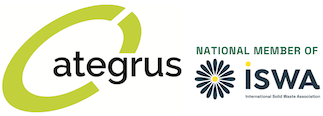Fuente: EEA, https://www.eea.europa.eu
Artículo publicado el 26 de abril de 2022
Europe is not on track to halve non-recycled municipal waste by 2030
The European Union (EU) circular economy action plan aims to halve the amount of municipal waste in the EU that is not recycled by 2030. According to a European Environment Agency (EEA) briefing, published today, achieving this target requires both reducing waste generation and considerably increasing recycling, possibly even beyond the binding recycling target of 60%. A second EEA briefing reviews municipal waste management in the Western Balkan countries.
The EEA briefing ‘’ analyses recent municipal waste trends in the EU in the light of achieving two key waste targets: the obligation for each EU Member State to recycle at least 60% of municipal waste by 2030, and the EU level goal of halving residual municipal waste that is landfilled or incinerated by 2030.
The amount of residual municipal waste has remained relatively stable in the EU over the past 5 years, at about 113 million tonnes, because the recycling rates and the amount of waste generated have increased approximately with the same pace. In 2020, about 48% of municipal waste in the EU was recycled.
If more municipal waste keeps getting generated, the EU would have to recycle about 72% of it to meet the target of halving the amount of residual (non-recycled) municipal waste by 2030. Alternatively, the target could be achieved by reducing the amount of waste generated by around one third and achieving the 60% recycling rate in all EU member states, according to the EEA analysis.
(…)
El artículo completo y todos los detalles se pueden encontrar aquí: https://www.eea.europa.eu/highlights/europe-is-not-on-track
Para poder descargarse el documento «‘Reaching 2030’s residual municipal waste target – why recycling is not enough’» mencionado, en el enlace: https://www.eea.europa.eu/publications/reaching-2030s-residual-municipal-waste/reaching-2030s-residual-municipal-waste https://www.eea.europa.eu/highlights/how-green-are-european-cities

